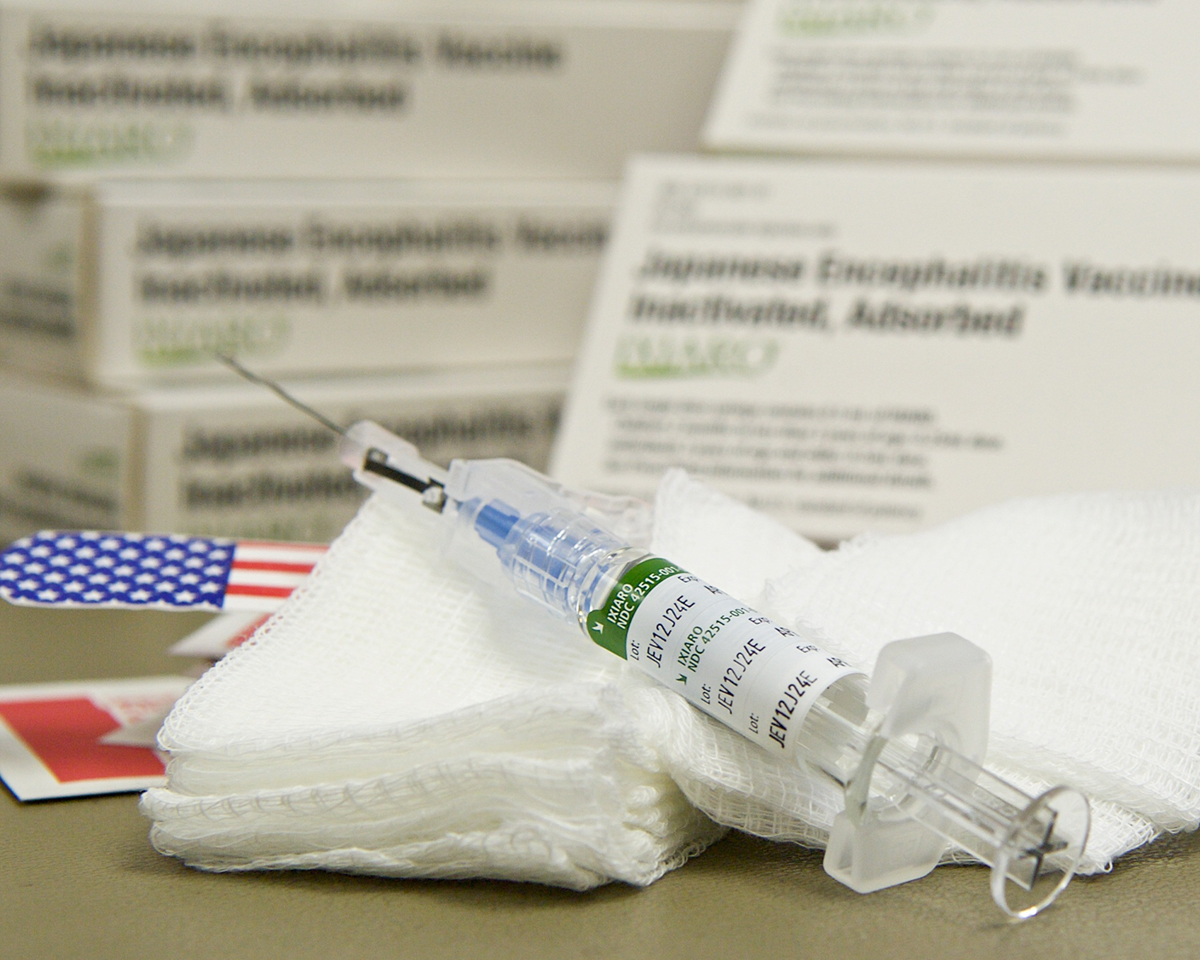
Ixiaro is a kind of Japanese encephalitis vaccine that contains an inactivated form of the virus and it works by stimulating the immune response to the virus without actually causing the disease.
Whenever the body is exposed to bacteria or viruses the immune system begins to produce antibodies for fighting them, which later remain in the body to help prevent further infections.
This is why vaccines usually contain extracts of the inactivated form of whatever is causing the disease. So even though they are not causing the disease to occur, they are still making the immune system produce antibodies to combat it. The Japanese encephalitis vaccine makes the body produce antibodies for fighting the Japanese encephalitis virus. It is usually given to people who are going to be traveling in a region that is at a high risk for the virus.
The injection of the vaccine is usually given in the regular spot, the muscle of the upper arm. It is important to remember that this vaccine will prevent the Japanese encephalitis virus only, not all kinds of encephalitis. People with weak immune systems might need more than one dose of the vaccine. For example, if a person is infected with HIV or has recently undergone chemotherapy, then they should probably be vaccinated more than once.
There have been no studies done on the effects of the vaccine for younger people, only more mature adults, therefore, it is not recommended for children and adolescents. Also, people with blood clotting disorders and low blood cell counts should not be vaccinated either.
New mothers and mothers-to-be should know that this vaccine is not recommended for pregnant women. There is not enough data yet on how it affects pregnancy and whether it has any negative effects on breastfeeding. So, it is better to be safe than sorry.
There are a number of side effects that are expected to result from the vaccination. The most common ones (which occur in one out of ten people who are vaccinated) include headaches, muscle pain, nausea, rashes, and fatigue, and fever, flu-like symptoms, swelling and itching at the injection site.
Less likely side effects include diarrhea, vomiting, sore throat, dizziness, migraine headaches and an inflammation of the lymph glands. However, the vaccine is not expected to have any negative effects when being mixed with other medication. But, it is important to tell the doctor if a person is taking other medication, just to make sure.
Medication that suppresses the immune system such as chemotherapy, high-dose corticosteroids, or immunosuppressant’s, should not be combined with the vaccine because the immune system will probably be too weak to respond properly to the virus and therefore, the vaccine will not be as effective as expected.

















Your thoughts on this
Loading...